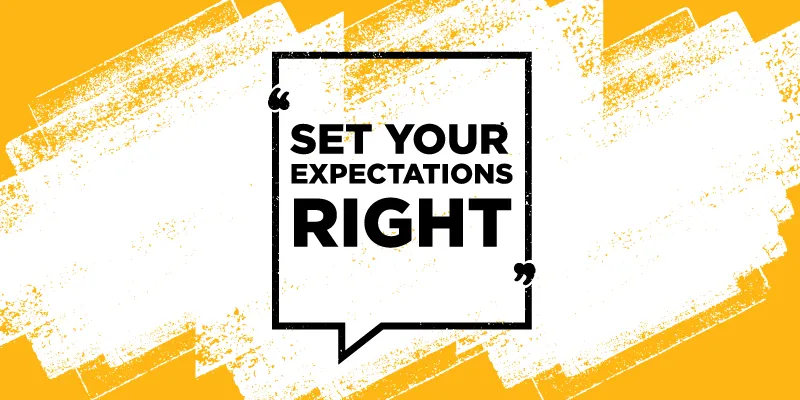What NOT to expect from experts, mentors, and salespeople
Domain experts, mentors, and salespeople play a very important role in a startup’s journey. But it is important to set your expectations right, because they cannot be a substitute for certain processes that are entirely dependent on the founding team.
The experience and skills of others are very useful in execution, in the ‘how’ of your actions — both on the product/service and market sides. But past experience has a limited role to play in the ‘what’ side of your choices, decisions, and actions, particularly if you believe you are solving a problem that no one else has solved so far.

Product-market fitment and go-to market strategy for a new product is an agile, iterative process. You have to suspend your assumptions, unlearn past experience, and go to the market with a completely open mind. What the markets/customers are telling you about the problem and about your solution is more valuable than what the experts are telling you. You need to ask the right questions. The difficult questions. The hidden questions. And you have to go out and find answers to those questions yourselves.
If you send a hired sales guy to find these answers, he will simply come back and say, “I tried, but people are not convinced.” He will think more hard work and knocking on more doors will help. He will do everything sincerely, but he won’t find the answers. And that means we won’t know what additional questions we need to ask from the market.
The reason you need to go to the market yourself — even if you are a techie or an ex CXO — is that the answers you get will not be conclusive. They will just lead to more and better questions.
But the reason you do not want to do it is because you tell yourself “I am not a good sales guy. I need better salespeople.”
But the real reason why you do not want to do it is that the answers actually hurt like hell.
That is why product–market fitment is not only an agile and iterative process, but also an emotional and spiritual journey. You need mental, emotional, and spiritual strength to pass through this test of fire — questions–answers–PAIN–more questions–answers–PAIN — as you slowly align your value proposition to what the market is willing to pay.
Getting a few paying customers might indicate that you have got the alignment right. However, it is not sufficient to scale, because the effort-to-result ratio may not be favourable. If your effort-to-result ratio is not improving with time, it means there is more work to be done. You need to ask more questions and get more answers. Getting to a state of resonance is what you really need. Resonance is much more than just alignment. When there is resonance between your DNA, your passion, your product, and your value proposition on the one side and the customers, users, and market on the other side is when you can scale.
And as you scale, the resonance might get lost. It is like tuning your musical instrument every day. If you do not do it often enough, you will get stuck along the way. There are startups that are more than five years old surviving, paying salaries, but still struggling to scale.
That is why product-market fitment should be treated like any other process, like ISO, Six Sigma, or TQM. It is a never-ending, ongoing process that eventually gets embedded into the organisation’s culture.
And the responsibility for that starts with you. The inner integrity, courage, and determination to go through this painful process, not just once, but as often it is required, has to come from you. If you can manage that, you can build an organisation that is never afraid of critical questions and painful answers.
No mentor, expert, or experienced salesperson can be a substitute for that.
More articles related to startups by Ramkumar R S:
(Disclaimer: The views and opinions expressed in this article are those of the author and do not necessarily reflect the views of YourStory.)







